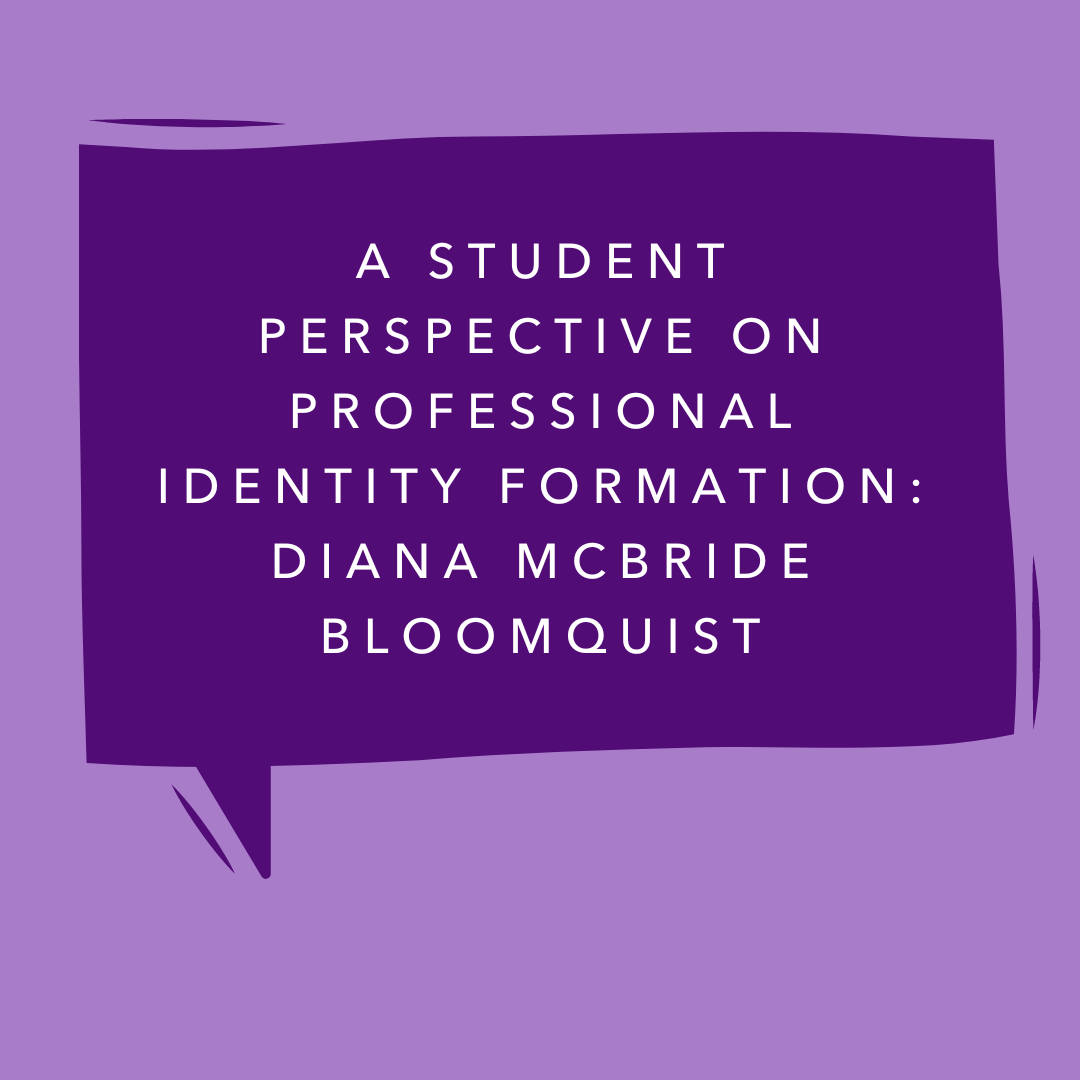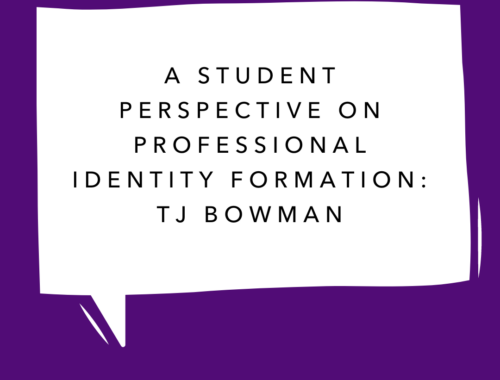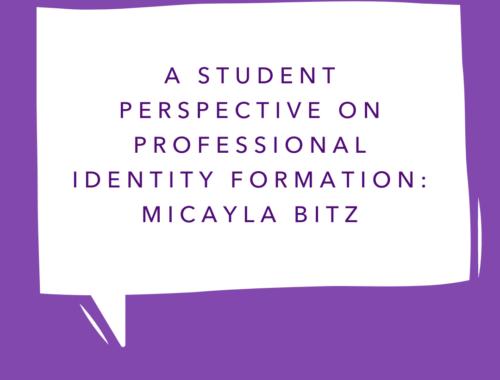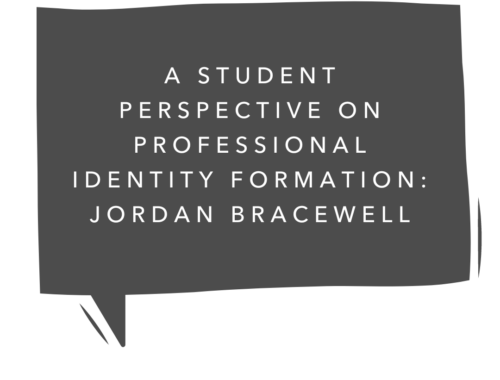By: Diana McBride Bloomquist, 2L
Professional identity formation is discerning what kind of lawyer you want to be, what motivates you, and why you want to practice law. Coming into law school, I was unaware of how crucial it is to develop a strong professional identity, and I am so grateful for Regent University’s emphasis on it. From the first week of classes, our professors impressed upon us how easy it is for lawyers to make professional decisions that directly conflict with personal values and beliefs and how this can result in deep-rooted unhappiness. I did not know that cognitive dissonance flows from making decisions inconsistent with intrinsic values and that our moral compass keeps track of those—regardless of whether we are aware of it. I learned that this process is subtle and that seemingly minor compromises, where an action conflicts with our values, can lead one to integrate a new identity over time. Regent combats this moral drift by placing professional identity formation at the forefront of a student’s legal education. Establishing your purpose for practicing law and determining why you are being called to serve in this way should inform and influence the decisions you make during your time in school and beyond. I am now convinced that developing self-awareness and sensitivity to one’s moral compass—along with relying on trusted mentors—provides the best insurance of integrity (acting in accord with core values) versus disintegration of those values over time by seeking extrinsic motivations like money or prestige. I learned early that adhering to the Model Rules of Professional Conduct alone will not protect me from moral drift and the inevitable unhappiness that results from the pursuit of extrinsic values. Instead, forming an identity that prioritizes core values has already led me to anticipate practicing in a way that may be challenging but will be fulfilling.
Regent Law’s Center for Professional Formation focuses on ensuring that we, as students, are given many opportunities to form our professional identity and consider how it will impact our future practice. Through the Center for Professional Formation, students can receive an alumni mentor and access to programs that direct us on a path that keeps us focused on our intrinsic core values. In line with these goals, the law faculty has developed required 1L courses such as Foundations of Law and Foundations of Practice. Foundations of Law explores the nature of law by assigning readings of classical texts, including Aquinas and Blackstone, and more contemporary and contentious issues, then facilitating open discussion in class that returns to the core values foundational to our legal system. Foundations of Practice includes readings and discussions with lawyers in various practice areas, such as Virginia Attorney General Jason Miyares and Professor Robert Cochran, who believe in professional identity formation and help students connect the ethical and moral decisions inherent in law practice.
Additionally, the Center for Professional Formation ensures that each student has a faculty mentor with whom we must meet as part of the Foundations of Practice Curriculum to develop a “Discernment Plan.” The Discernment Plan is the primary product of our Foundations of Practice course, and we are told it is meant to function as a living document that we can regularly revise as we move through law school under the same faculty mentor. The Discernment Plan explores a student’s gifts, potential areas for growth, and ultimately, the areas of law in which they may be the most successful. Due to Regent’s focus on professional identity, my idea of success has shifted. I believe I will be most successful in a field where my gifts can help others through law. I have also learned that identifying my gifts can involve a willingness to face fears and explore whether I can do things I thought were not possible. For instance, when I told my faculty mentor of my fear of public speaking, he encouraged me to lean into the discomfort of participating in our 1L Moot Court Competition. I had mentioned this fear in my draft of the Discernment Plan and, in retrospect, I am glad my mentor challenged me rather than allowing my fear to keep me from exploring potential strengths.
Aside from its commitment to professional identity formation through the Center for Professional Formation, Regent has begun integrating professional identity formation into doctrinal classes. For example, in an exercise in Civil Procedure, we were assigned a reading and reflection response on a hypothetical professional identity scenario, which we then discussed in class. The exercise revealed the numerous interests beyond the client’s best interest that influenced a lawyer’s advice to a client on whether to file a suit in state or federal court. Before analyzing this hypothetical question and answering the reflection questions, I was unaware that a lawyer’s interests could override the client’s best interests. In many of our required 1L classes, professors remind us that the individuals in assigned cases are real people, not just fictional characters meant to illustrate a legal concept.
Regent has done an excellent job encouraging reflection on forming our professional identity—both in courses specifically designed to do so and in other doctrinal courses through purposeful exercises. Professional identity formation influences every aspect of the education Regent has to offer and has shown me that my primary goals in practicing law are to embrace growth, even through challenging myself to withstand discomfort as I did with oral advocacy, and to serve future clients without sacrificing core values.

I am a rising 2L at Regent University School of Law. I currently serve as a law school representative on the Council of Graduate Students and as the Vice-President of the Women’s Law Association.



